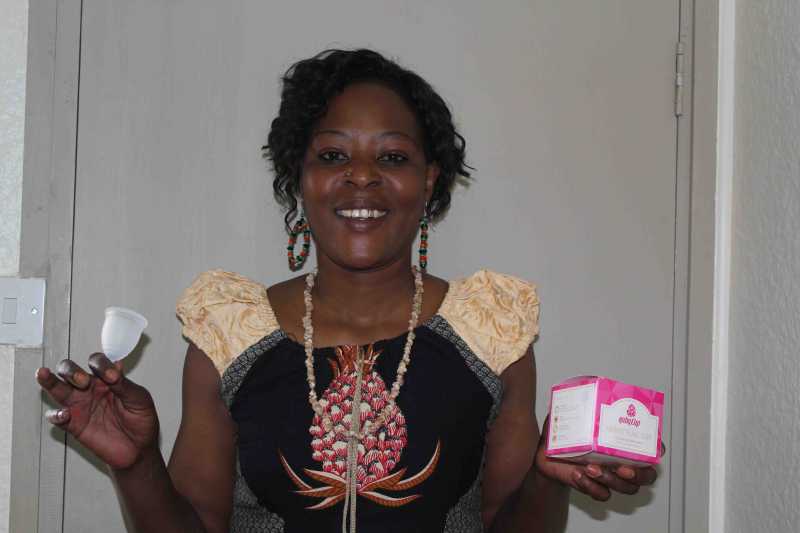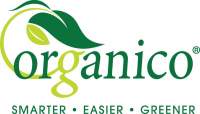- Equity, inclusion and sanitation workers
- Menstrual health and hygiene (MHH) or Menstrual hygiene management (MHM)
- Menstrual hygiene products (e.g. menstrual cups, washable pads, period panties)
- The Ruby cup and MHM experiences from Kenya
The Ruby cup and MHM experiences from Kenya
58.2k views
YAY!  I simply cannot wait for people "to hop on the cup trend" here in Kenya! Its so worth it!
I simply cannot wait for people "to hop on the cup trend" here in Kenya! Its so worth it!
Its about time women in this country go about their lives without having to worry about next month and whether they are going to afford their next packet of sanitary towels. Menstruation should never be a hindrance.
Hopefully with the menstrual cup, many will be able to go about their business and school work assertively and confidently without fear and worry. The cost benefits advantages are huge. I write from experience.
I look forward to hearing about the sales.
Best regards,
Doreen
Its about time women in this country go about their lives without having to worry about next month and whether they are going to afford their next packet of sanitary towels. Menstruation should never be a hindrance.
Hopefully with the menstrual cup, many will be able to go about their business and school work assertively and confidently without fear and worry. The cost benefits advantages are huge. I write from experience.
I look forward to hearing about the sales.
Best regards,
Doreen
Doreen Mbalo
GIZ Sustainable Sanitation Programme
Policy Advisor in Bonn, Germany
Deutsche Gesellschaft für Internationale Zusammenarbeit (GIZ) GmbH
E This email address is being protected from spambots. You need JavaScript enabled to view it.
GIZ Sustainable Sanitation Programme
Policy Advisor in Bonn, Germany
Deutsche Gesellschaft für Internationale Zusammenarbeit (GIZ) GmbH
E This email address is being protected from spambots. You need JavaScript enabled to view it.
Please Log in to join the conversation.
You need to login to reply
And here's another one, published in Nairobi's UP (lifestyle) magazine in May 2012:
I am very glad to see how all of this is being set up as a business - and not as some aid project. Great!
I am very glad to see how all of this is being set up as a business - and not as some aid project. Great!
Juergen Eichholz
watsan eng.
water, sanitation, IT & knowledge management
www.saniblog.org
Toilets in Frankfurt/Main www.facebook.com/ffmtoi
watsan eng.
water, sanitation, IT & knowledge management
www.saniblog.org
Toilets in Frankfurt/Main www.facebook.com/ffmtoi
Attachments:
-
Foto.JPG (Filesize: 53KB)
The following user(s) like this post: tmsinnovation, Doreen
Please Log in to join the conversation.
You need to login to reply
Dear Elisabeth,
Thank you for this very interesting blog post. I am grateful for your introduction of Ruy Cup to Lindlyn. Amazing that she included it in her presentation right away. I hope she reads this and knows how grateful we are about that.
Funnily enough, we share similar experiences to those you experienced during the presentation in Cairo. First of all, the concept of a menstrual cup is fairly new in many settings and as such, it always spurs curiosity and arises interest amongst people. Especially the fact that it can be re-used up to 10 years makes that people usually become very fond of the concept. Moreover, we experienced that often men are amazed by the benefits of menstrual cups, especially from an economic point of view. Men can see the cost-benefit advantages and are less concerned about cultural barriers and hygiene than women.
For your information: Ruby Cup is going to be avalibale both online in two weeks on www.ruby-cup.com and we are going to kickstart sales in Kibera and Kuwarangware in collaboration with Mchanga and Livelyhoods (www.livelyhoods.org), respctively.
I have attached two pictures of our power Ruby Sales Ladies, and will share more information from the women-to-women sales process, including our learnings on the way, as we go along.
So long,
sunshine greetings from Nairobi!
Maxie
Thank you for this very interesting blog post. I am grateful for your introduction of Ruy Cup to Lindlyn. Amazing that she included it in her presentation right away. I hope she reads this and knows how grateful we are about that.
Funnily enough, we share similar experiences to those you experienced during the presentation in Cairo. First of all, the concept of a menstrual cup is fairly new in many settings and as such, it always spurs curiosity and arises interest amongst people. Especially the fact that it can be re-used up to 10 years makes that people usually become very fond of the concept. Moreover, we experienced that often men are amazed by the benefits of menstrual cups, especially from an economic point of view. Men can see the cost-benefit advantages and are less concerned about cultural barriers and hygiene than women.
For your information: Ruby Cup is going to be avalibale both online in two weeks on www.ruby-cup.com and we are going to kickstart sales in Kibera and Kuwarangware in collaboration with Mchanga and Livelyhoods (www.livelyhoods.org), respctively.
I have attached two pictures of our power Ruby Sales Ladies, and will share more information from the women-to-women sales process, including our learnings on the way, as we go along.
So long,
sunshine greetings from Nairobi!
Maxie
Maxie Matthiessen
Co-Founder of Ruby Cup by Makit Ltd
This email address is being protected from spambots. You need JavaScript enabled to view it.
+49 (0)176 2765 2953
www.ruby-cup.com
www.facebook.com/rubycup
Co-Founder of Ruby Cup by Makit Ltd
This email address is being protected from spambots. You need JavaScript enabled to view it.
+49 (0)176 2765 2953
www.ruby-cup.com
www.facebook.com/rubycup
Attachments:
-
LivelyHood...yCup.JPG (Filesize: 35KB)
-
 ZenaSmall.jpg
(Filesize: 28KB)
ZenaSmall.jpg
(Filesize: 28KB)
The following user(s) like this post: Elisabeth, tmsinnovation, Doreen
Please Log in to join the conversation.
You need to login to reply- Elisabeth
-
- User is blocked
- Freelance consultant since 2012
Less- Posts: 3372
- Karma: 54
- Likes received: 932
Re: The Ruby cup and MHM experiences from Kenya
Dear all,
Here is some more feedback from the 15th SuSanA meeting which was in conjunction with the 4th Africa Water Week in Cairo last week.
I chaired a session where one of the presentations was on "Menstrual Hygiene Management in Africa" (session details here: www.susana.org/lang-en/meetings/may-2012-cairo-no-15 -- all presentations and the video footage from this session (!) will be uploaded next week).
It was Lindlyn Moma from WaterAid who gave this presentation. Lindlyn is orginally from Cameroon and is currently working on a regional program in Southern Africa. Before her presentation I mentioned the Ruby Cup to here. She immediately picked up on this aspect and built it into her presentation, including 2 photos of the Ruby Cup. Her presentation is available here:
Here is what impressed me about this presentation in this particular session:
Lindlyn's passion and being so brave to break this taboo in front of a crowd of mostly policy makers, members of ministries, water utilities and so forth - her presentation was the only one in this entire Africa Water Week which mentioned menstrual hygiene. As is common, sanitation played a lower key role at the Africa Water Week compared to water - but more than at the last Africa Water Week which I attended. And hygiene topics were even less prominent on the agenda, except for our session.
When she was finished with her presentation I - as the chairperson - asked if there were questions or comments from the audience. I thought that probably everyone would be too embarrassed to ask a question about menstrual hygiene management... But not so! And guess what: She received about 3-4 questions (all by men if I remember right!) and all the questions were about the menstrual cup (not about the rest of her presentation)! It still strikes me as odd that menstrual cups are still so little known all over the world despite being around for decades actually (what has gone wrong with the advertisting of this product?).
I always stress that the menstrual cup will of course not be the solution for every women (many women don't want to insert anything). But what it does do: it seems to be a great entry point for further discussion on MHM! Why? Well I think it gets people interested - is is an exciting, interesting, different option. People are kind of bored/uninterested to talk about pads (washable or not), also pads are somehow inherently disgusting (when soaked with blood). Whereas the cup is a much "cleaner" solution. And what I like about the cup: we are discussing a product here which can be used by women in developed and in developing countries alike. This is not the case with the reusable, washable pads - which would never get popular amongst European women, I would say.
As Doulaye Koné said about toilets in the same session: why are we trying to push a type of toilet (pit latrines) onto people which we would never want to use ourselves?
Just to re-iterate: I am not saying that the cup will be the right option for every women. I just find it interesting how it provides an entry point to further discussions (and gets even men curious!) - as I witnessed in this session last Thursday in Cairo. Maybe it's just due to mentioning the word "silicon" which sounds modern.
Regards,
Elisabeth
Here is some more feedback from the 15th SuSanA meeting which was in conjunction with the 4th Africa Water Week in Cairo last week.
I chaired a session where one of the presentations was on "Menstrual Hygiene Management in Africa" (session details here: www.susana.org/lang-en/meetings/may-2012-cairo-no-15 -- all presentations and the video footage from this session (!) will be uploaded next week).
It was Lindlyn Moma from WaterAid who gave this presentation. Lindlyn is orginally from Cameroon and is currently working on a regional program in Southern Africa. Before her presentation I mentioned the Ruby Cup to here. She immediately picked up on this aspect and built it into her presentation, including 2 photos of the Ruby Cup. Her presentation is available here:
This attachment is hidden for guests.
Please log in or register to see it.
Please log in or register to see it.
Here is what impressed me about this presentation in this particular session:
Lindlyn's passion and being so brave to break this taboo in front of a crowd of mostly policy makers, members of ministries, water utilities and so forth - her presentation was the only one in this entire Africa Water Week which mentioned menstrual hygiene. As is common, sanitation played a lower key role at the Africa Water Week compared to water - but more than at the last Africa Water Week which I attended. And hygiene topics were even less prominent on the agenda, except for our session.
When she was finished with her presentation I - as the chairperson - asked if there were questions or comments from the audience. I thought that probably everyone would be too embarrassed to ask a question about menstrual hygiene management... But not so! And guess what: She received about 3-4 questions (all by men if I remember right!) and all the questions were about the menstrual cup (not about the rest of her presentation)! It still strikes me as odd that menstrual cups are still so little known all over the world despite being around for decades actually (what has gone wrong with the advertisting of this product?).
I always stress that the menstrual cup will of course not be the solution for every women (many women don't want to insert anything). But what it does do: it seems to be a great entry point for further discussion on MHM! Why? Well I think it gets people interested - is is an exciting, interesting, different option. People are kind of bored/uninterested to talk about pads (washable or not), also pads are somehow inherently disgusting (when soaked with blood). Whereas the cup is a much "cleaner" solution. And what I like about the cup: we are discussing a product here which can be used by women in developed and in developing countries alike. This is not the case with the reusable, washable pads - which would never get popular amongst European women, I would say.
As Doulaye Koné said about toilets in the same session: why are we trying to push a type of toilet (pit latrines) onto people which we would never want to use ourselves?
Just to re-iterate: I am not saying that the cup will be the right option for every women. I just find it interesting how it provides an entry point to further discussions (and gets even men curious!) - as I witnessed in this session last Thursday in Cairo. Maybe it's just due to mentioning the word "silicon" which sounds modern.
Regards,
Elisabeth
Dr. Elisabeth von Muench
Freelance consultant on environmental and climate projects
Freelance consultant on environmental and climate projects
This message has an attachment file.
Please log in or register to see it.
The following user(s) like this post: Doreen, Maxie
Please Log in to join the conversation.
You need to login to reply
Thanks so much for the information, Nazir. Good to know!
Hope to stay in touch through this forum and please keep me updated about other news regarding menstrual cups in low income areas.
Maxie
Hope to stay in touch through this forum and please keep me updated about other news regarding menstrual cups in low income areas.
Maxie
Maxie Matthiessen
Co-Founder of Ruby Cup by Makit Ltd
This email address is being protected from spambots. You need JavaScript enabled to view it.
+49 (0)176 2765 2953
www.ruby-cup.com
www.facebook.com/rubycup
Co-Founder of Ruby Cup by Makit Ltd
This email address is being protected from spambots. You need JavaScript enabled to view it.
+49 (0)176 2765 2953
www.ruby-cup.com
www.facebook.com/rubycup
Please Log in to join the conversation.
You need to login to reply- nazir
-
 Less
Less- Posts: 34
- Likes received: 4
Hi Maxie
I have had some communication with Miacup and all they looking at is the possibility in having agents. They are actually not equipped to find real solutions for disadvantaged communities and I believe your option would be better.
Thank You.
Nazir.
I have had some communication with Miacup and all they looking at is the possibility in having agents. They are actually not equipped to find real solutions for disadvantaged communities and I believe your option would be better.
Thank You.
Nazir.
The following user(s) like this post: Maxie
Please Log in to join the conversation.
You need to login to reply- tmsinnovation
-

- Moderator
- I manage the Decentralized Wastewater Management for Adaptation to Climate Change in Jordan (ACC Project) and previously coordinated the Climate-friendly sanitation services in peri-urban areas of Lusaka project in Zambia. My background is in Management, Economics and Information Systems.
Less- Posts: 162
- Karma: 4
- Likes received: 53
Hi Maxie and team
Congrats on the Grand Prize at the 2012 Global Social Entrepreneurship Competition in Washington.
Here is a link to an article on it: depts.washington.edu/foster/34000-for-be...eneur-ideas-of-2012/
If there are other links and articles on your success, please do share.
Rgds
Trevor
Congrats on the Grand Prize at the 2012 Global Social Entrepreneurship Competition in Washington.
Here is a link to an article on it: depts.washington.edu/foster/34000-for-be...eneur-ideas-of-2012/
If there are other links and articles on your success, please do share.
Rgds
Trevor
Trevor Surridge
Decentralized Wastewater Management for Adaptation to Climate Change in Jordan (ACC Project)
Project Manager
Deutsche Gesellschaft für
Internationale Zusammenarbeit (GIZ) GmbH
Ministry of Water and Irrigation, Shmeisani,
Amman
Jordan
Decentralized Wastewater Management for Adaptation to Climate Change in Jordan (ACC Project)
Project Manager
Deutsche Gesellschaft für
Internationale Zusammenarbeit (GIZ) GmbH
Ministry of Water and Irrigation, Shmeisani,
Amman
Jordan
Please Log in to join the conversation.
You need to login to reply
Hey everyone,
Thank you for your interesting posts!
Dear Monika, I have not heard about any menstrual cup projects in Haiti. Would you like to start one with Ruby Cup? We are currently engaged in projects and pilots in South Africa, Uganda and abviously Kenya with different organisations and in different cultural settings.
Dear Nazir, I was just on the Miacup website and the current price is 50 USD (www.miacup.co.za/eng/store/where.php#status)
Ruby Cup goes at 1/5 of that price and from what we understand, Miacup targets high income areas. Our target group are particularly girls and women in low income areas that are little educated and have little knowledge about menstrual hygiene in general. The Ruby Cup package comes with educational material about menstrual hygiene and we do capacity building for lead users/teachers.
Please read my following post for further information:
forum.susana.org/forum/categories/24-men...mit=12&start=12#1087
or please feel free to conatct me: This email address is being protected from spambots. You need JavaScript enabled to view it.
Cheers,
Maxie
Thank you for your interesting posts!
Dear Monika, I have not heard about any menstrual cup projects in Haiti. Would you like to start one with Ruby Cup? We are currently engaged in projects and pilots in South Africa, Uganda and abviously Kenya with different organisations and in different cultural settings.
Dear Nazir, I was just on the Miacup website and the current price is 50 USD (www.miacup.co.za/eng/store/where.php#status)
Ruby Cup goes at 1/5 of that price and from what we understand, Miacup targets high income areas. Our target group are particularly girls and women in low income areas that are little educated and have little knowledge about menstrual hygiene in general. The Ruby Cup package comes with educational material about menstrual hygiene and we do capacity building for lead users/teachers.
Please read my following post for further information:
forum.susana.org/forum/categories/24-men...mit=12&start=12#1087
or please feel free to conatct me: This email address is being protected from spambots. You need JavaScript enabled to view it.
Cheers,
Maxie
Maxie Matthiessen
Co-Founder of Ruby Cup by Makit Ltd
This email address is being protected from spambots. You need JavaScript enabled to view it.
+49 (0)176 2765 2953
www.ruby-cup.com
www.facebook.com/rubycup
Co-Founder of Ruby Cup by Makit Ltd
This email address is being protected from spambots. You need JavaScript enabled to view it.
+49 (0)176 2765 2953
www.ruby-cup.com
www.facebook.com/rubycup
The following user(s) like this post: tmsinnovation
Please Log in to join the conversation.
You need to login to reply- MonikaR
-
 Less
Less- Posts: 7
- Karma: 2
- Likes received: 3
This is really exciting! Like Elizabeth, I swear by the Diva Cup and haven't gone back after starting using it 4 years ago. I hope that social norms and taboos will not prevent discussions from happening about reproductive rights and the dispersal of the Ruby Cups.
Does anyone know about any such projects going on in Haiti? I'm down here working on Emergency EcoSan and the topic of pads in the compost pile comes up because the plastic lining does not compost. We sift the compost anyways for trash, but it would be great to spread the menstrual cup joy. Cheers!
Monika
Does anyone know about any such projects going on in Haiti? I'm down here working on Emergency EcoSan and the topic of pads in the compost pile comes up because the plastic lining does not compost. We sift the compost anyways for trash, but it would be great to spread the menstrual cup joy. Cheers!
Monika
Please Log in to join the conversation.
You need to login to reply- nazir
-
 Less
Less- Posts: 34
- Likes received: 4
Dear friends.
A South African company also manufactures these products. Might be a cheaper option.
www.miacup.co.za/
Thank You.
Nazir.
A South African company also manufactures these products. Might be a cheaper option.
www.miacup.co.za/
Thank You.
Nazir.
Please Log in to join the conversation.
You need to login to reply- tmsinnovation
-

- Moderator
- I manage the Decentralized Wastewater Management for Adaptation to Climate Change in Jordan (ACC Project) and previously coordinated the Climate-friendly sanitation services in peri-urban areas of Lusaka project in Zambia. My background is in Management, Economics and Information Systems.
Less- Posts: 162
- Karma: 4
- Likes received: 53
Hi Maxie and the Makit / Ruby Cup team
How are things going in Kenya?
Are you managing to keep the momentum up that you built up last year?
Give us an update on your progress.
Hope all is going well!
How are things going in Kenya?
Are you managing to keep the momentum up that you built up last year?
Give us an update on your progress.
Hope all is going well!
Trevor Surridge
Decentralized Wastewater Management for Adaptation to Climate Change in Jordan (ACC Project)
Project Manager
Deutsche Gesellschaft für
Internationale Zusammenarbeit (GIZ) GmbH
Ministry of Water and Irrigation, Shmeisani,
Amman
Jordan
Decentralized Wastewater Management for Adaptation to Climate Change in Jordan (ACC Project)
Project Manager
Deutsche Gesellschaft für
Internationale Zusammenarbeit (GIZ) GmbH
Ministry of Water and Irrigation, Shmeisani,
Amman
Jordan
Please Log in to join the conversation.
You need to login to reply
Hello again,
If you are interested in reading more articles about menstrual hygiene management, please take a look at the two following links on this site:
Acceptabilty study by APHRC:
www.susana.org/library?search=APHRC
Other publications on Menstrual Hygiene Management in the SuSaNA library:
www.susana.org/library?search=MHM
Happy reading!
If you are interested in reading more articles about menstrual hygiene management, please take a look at the two following links on this site:
Acceptabilty study by APHRC:
www.susana.org/library?search=APHRC
Other publications on Menstrual Hygiene Management in the SuSaNA library:
www.susana.org/library?search=MHM
Happy reading!
Maxie Matthiessen
Co-Founder of Ruby Cup by Makit Ltd
This email address is being protected from spambots. You need JavaScript enabled to view it.
+49 (0)176 2765 2953
www.ruby-cup.com
www.facebook.com/rubycup
Co-Founder of Ruby Cup by Makit Ltd
This email address is being protected from spambots. You need JavaScript enabled to view it.
+49 (0)176 2765 2953
www.ruby-cup.com
www.facebook.com/rubycup
Please Log in to join the conversation.
You need to login to reply
Share this thread:
- Equity, inclusion and sanitation workers
- Menstrual health and hygiene (MHH) or Menstrual hygiene management (MHM)
- Menstrual hygiene products (e.g. menstrual cups, washable pads, period panties)
- The Ruby cup and MHM experiences from Kenya
Recently active users. Who else has been active?
Time to create page: 0.265 seconds








